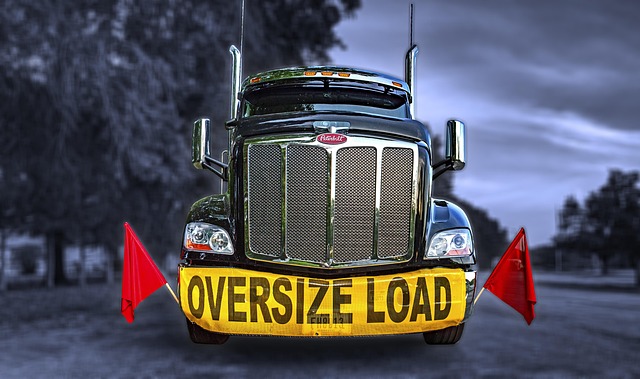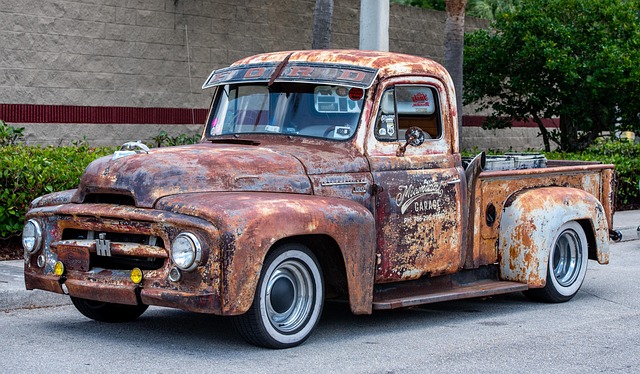Registering a car in California is a straightforward process, but understanding the requirements is key. This guide will walk you through each step, ensuring a smooth experience. From gathering essential documents to completing the registration application, we’ll cover it all. Additionally, learn about the importance of verifying your Vehicle Identification Number (VIN) using authorized agencies and trusted dmv vin verifier services. By following these steps, you’ll be on your way to securing your vehicle’s registration in no time.
- Understand California Car Registration Requirements
- Gather Necessary Documents for Vehicle Registration
- Visit Your Local DMV Office or Use Online Services
- Verify Vehicle Identification Number (VIN) with Authorized Agencies
- Complete and Submit the Registration Application Form
Understand California Car Registration Requirements

Before registering your car in California, it’s crucial to understand the state’s specific requirements. The California Department of Motor Vehicles (DMV) mandates that all vehicles operated within the state be properly registered and bear valid license plates. One critical aspect is ensuring the vehicle’s unique identifier, the Vehicle Identification Number (VIN), is accurate and verified. This process can be completed through a DMV VIN verifier or even a mobile vin verification service.
For out-of-state residents bringing their vehicles to California, it’s essential to check if any additional forms or fees are required. The state may also have specific rules for older or classic cars, so it’s beneficial to consult the DMV guidelines or use a mobile VIN inspection tool to confirm all necessary documents and ensure a smooth registration process.
Gather Necessary Documents for Vehicle Registration

Before you begin the registration process, ensure you have all the required documents. The California Department of Motor Vehicles (DMV) will need several pieces of information and paperwork to complete your vehicle’s registration. One crucial document is the Vehicle Identification Number (VIN) verifier, which can be obtained through a DMV-approved service or by conducting a mobile VIN inspection. This process verifies the vehicle’s history and ensures it meets safety standards.
Gathering all necessary documents upfront saves time and potential delays during registration. In addition to the VIN inspection results, you’ll need proof of ownership (a title or bill of sale), current insurance documents, and identification for both you and your vehicle’s owner. It’s recommended to check with your local DMV office for any additional requirements, as some areas may have specific guidelines regarding document submission.
Visit Your Local DMV Office or Use Online Services

Visiting your local DMV office or utilizing online services is the first step in registering your car in California. The California Department of Motor Vehicles (DMV) offers several convenient options for car registration, ensuring a straightforward process for all residents. If you choose to visit an official DMV location, be prepared with essential documents such as your driver’s license, vehicle registration from the previous state (if applicable), proof of insurance, and the Certificate of Title.
For those who prefer a more digital approach, the DMV provides online services that include a Vehicle Identification Number (VIN) verifier. This tool enables you to validate your car’s history and ensure it meets all legal requirements before registration. With the option for mobile VIN verification or a traditional vin inspection, California residents can efficiently navigate the registration process from the comfort of their homes or on-the-go.
Verify Vehicle Identification Number (VIN) with Authorized Agencies

Before proceeding with the registration process, it’s crucial to verify your vehicle’s Vehicle Identification Number (VIN) through authorized agencies like the DMV or specialized vin inspection services. This step is essential as a correct and authentic VIN ensures that you’re providing accurate data, which is vital for legal compliance. A mobile vin verifier can be used to facilitate this process conveniently, especially if you prefer a quick and efficient way to confirm your vehicle’s details.
By cross-referencing the VIN with official databases, you can ensure that the information associated with your car—such as its make, model, year, and history—is accurate. This is not only important for registration but also plays a significant role in ensuring safety standards and preventing fraud. Thus, taking this step ensures a smooth registration process and peace of mind.
Complete and Submit the Registration Application Form

To begin the registration process, you’ll need to complete and submit the Registration Application Form provided by the California Department of Motor Vehicles (DMV). This form is your official documentation for registering a car in California. Make sure to include all required information accurately, such as your personal details, vehicle specifications, and insurance details.
One crucial step before submission is to verify the Vehicle Identification Number (VIN) using a trusted method like a mobile VIN verification or inspection service. The DMV recommends utilizing a specialized tool, such as their online VIN verifier, to ensure the vehicle’s history is clear and matches the information you’ve provided. This is essential for a smooth registration process and helps prevent fraud.
Registering a car in California is a straightforward process, but it requires gathering the right documents and ensuring all criteria are met. By understanding the state’s requirements, having your necessary papers ready, and utilizing official DMV services or online platforms, you can efficiently complete the registration. Remember to verify your Vehicle Identification Number (VIN) with authorized agencies for added security. With these steps, you’ll be on your way to legally registering your vehicle in California. Don’t forget to consider using a trusted dmv vin verifier for peace of mind throughout the process.
